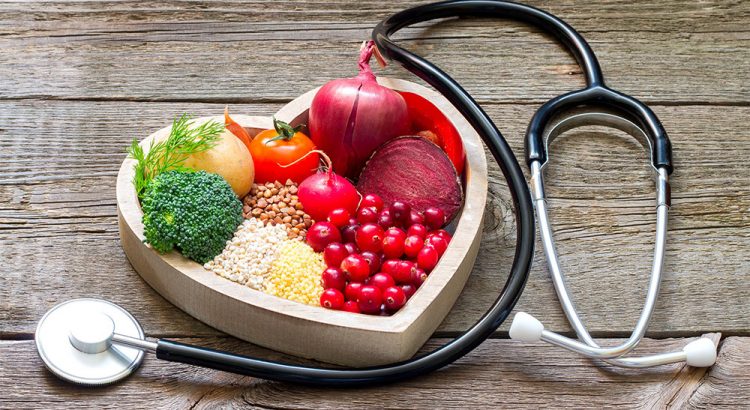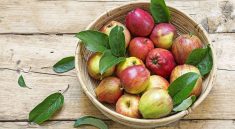High cholesterol is one of the main reasons for the development of cardiovascular diseases, so it is important to pay attention not only to medicines, but also to proper nutrition. Creating a menu for a week with high cholesterol helps to reduce its level and maintain heart health.
Necessity of diet for cholesterol
Diet for high cholesterol is crucial for normalizing the level of lipids in the blood. Cholesterol is a natural component of the body, but its excess can lead to the formation of atherosclerotic plaques, which in turn increases the risk of stroke, heart attack and other cardiovascular diseases. Proper nutrition helps to avoid such risks by normalizing the level of cholesterol in the body.
Nutrition rules for high cholesterol
- Decreasing the consumption of saturated fats
Saturated fats, which are found in red meat, fried foods, sausages and some dairy products, can increase the level of “bad” cholesterol. Instead, opt for monounsaturated and polyunsaturated fats, found in olive oil, avocados, nuts and fish. - Choosing foods with a high fiber content
Fiber helps lower blood cholesterol levels. Include more vegetables, fruits, whole grains and legumes in your diet. - Regularity of meals
Eat 4-5 times a day in small portions to maintain stable energy levels and normalize metabolism. - Choose foods rich in omega-3 fatty acids
Fish, especially fatty fish such as salmon, tuna, and sardines, are excellent sources of omega-3s, which help lower cholesterol and reduce inflammation in the body.
Cholesterol-lowering products
- Oats and products with fiber content
Oats contain beta-glucan, which helps lower cholesterol. Pay attention to oatmeal, rye bread, cereals, as well as vegetables and fruits.
- Nuts and seeds
Nuts, especially walnuts, almonds and chia seeds, are rich in monounsaturated fats and omega-3 fatty acids, which help lower “bad” cholesterol.
- Fish and seafood
Inclusion in the diet of fatty fish such as salmon, mackerel and sardines has a great effect on lowering cholesterol due to the high content of omega-3 fatty acids.
- Beans and soy products
Legumes, such as peas, beans, and lentils, as well as soy products help lower cholesterol levels thanks to their high amounts of plant-based protein and fiber.
Cholesterol-raising foods
- Saturated fats
Meat containing a high percentage of fat (pork, beef, lamb), as well as dairy products with a high fat content (cheese, cream) can increase the level of “bad” cholesterol.
- Trans fats
Trans fats found in industrially processed foods, such as baked goods, margarine, chips, can seriously worsen cholesterol levels and increase the risk of heart disease.
- Foods with a high sugar content
Sugar can also contribute to an increase in cholesterol levels, so it is necessary to limit the consumption of sweets, carbonated drinks and other foods with a high sugar content.
Creating a menu for a week with high cholesterol should be balanced, include foods that lower cholesterol, and limit those that increase it.
Monday
- Breakfast: Oatmeal with berries and nuts
- Lunch: Vegetable soup with lentils, baked chicken
- Lunch: An apple and some almonds
- Dinner: Fish baked with vegetables, quinoa
Tuesday
- Breakfast: Omelet with vegetables, whole grain bread
- Lunch: Salad with avocado, tuna and greens
- Lunch: Buckwheat with boiled vegetables
- Dinner: Stewed turkey, baked potatoes, broccoli
Wednesday
- Breakfast: Buckwheat porridge with honey (if you are interested in whether you can eat honey with high cholesterol, then the answer is positive in moderate amounts)
- Lunch: Vegetable stew with chicken
- Lunch: Berries with sugar-free yogurt
- Dinner: Salad with beans, tomatoes and olive oil
Thursday
- Breakfast: Toast with avocado and egg
- Lunch: Salmon with broccoli, mashed potatoes
- Afternoon: Nuts and dried fruits
- Dinner: Baked zucchini with chickpeas and tomatoes
Friday
- Breakfast: Wheat porridge with berries
- Lunch: Turkey stew with vegetables
- Afternoon: Baked apple with cinnamon
- Dinner: Fish with carrot and cabbage salad
Saturday
- Breakfast: Omelet with vegetables
- Lunch: Baked chicken with vegetables
- Lunch: Cabbage salad and carrots
- Dinner: Buckwheat with stewed vegetables
Sunday
- Breakfast: Oatmeal with berries and chia seeds
- Lunch: Salmon with green salad
- Lunch: An apple and a few walnuts
- Dinner: Broccoli puree soup
Can you eat honey with high cholesterol?
Honey is a natural sweetener and can be used in moderation as part of a high cholesterol diet. It is important to remember that honey has a high calorie content, so it should be consumed in limited quantities.
Thus, a properly balanced diet with high cholesterol can significantly improve the level of lipids in the blood and reduce the risk of cardiovascular diseases.




